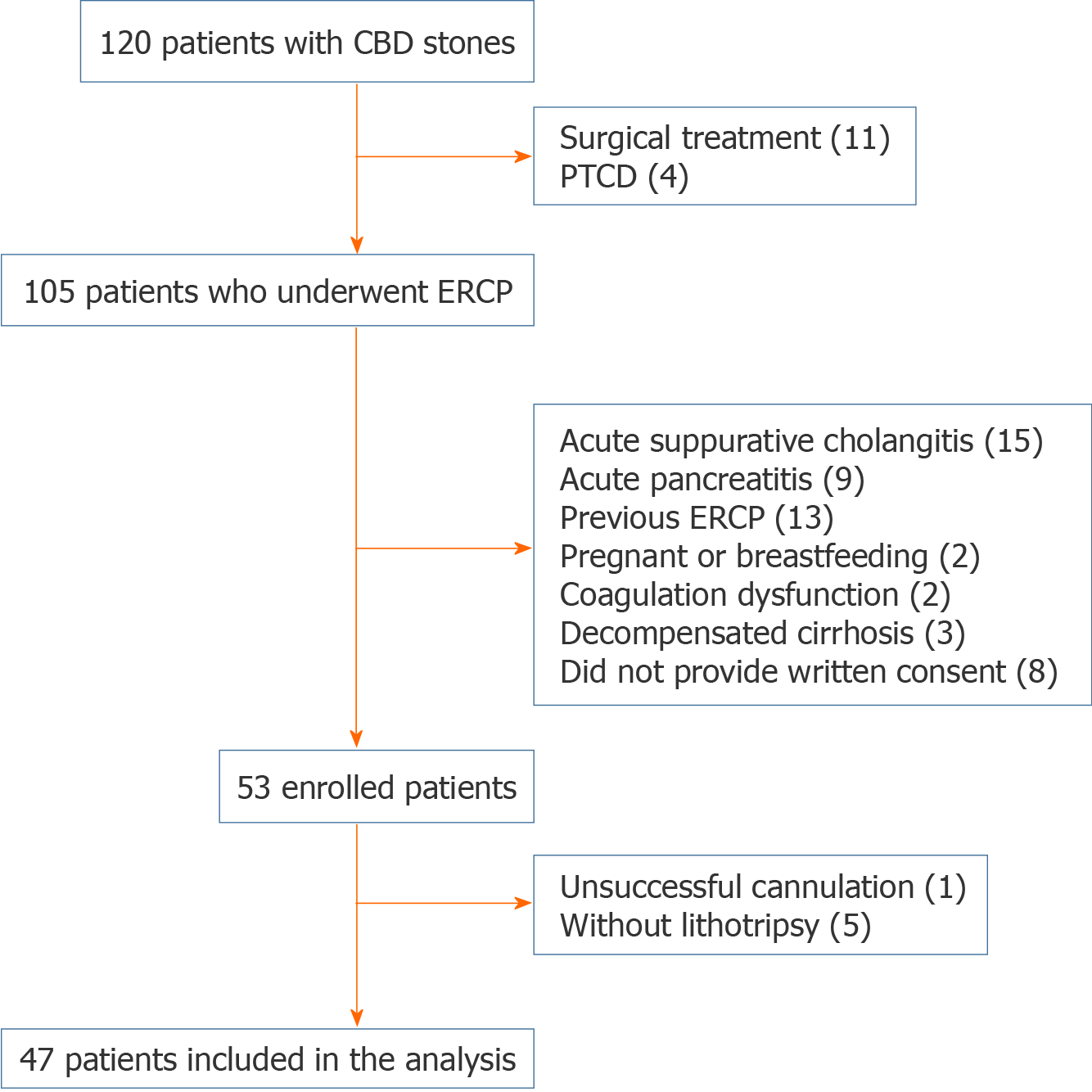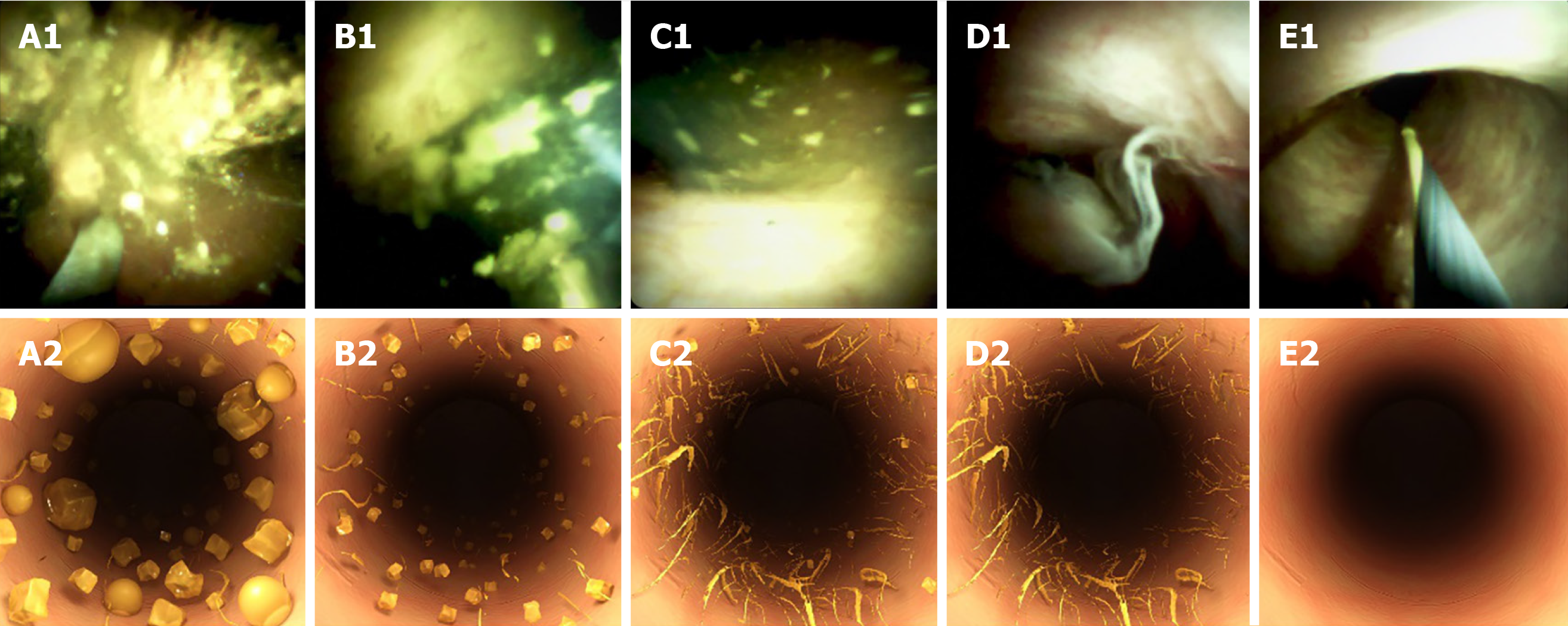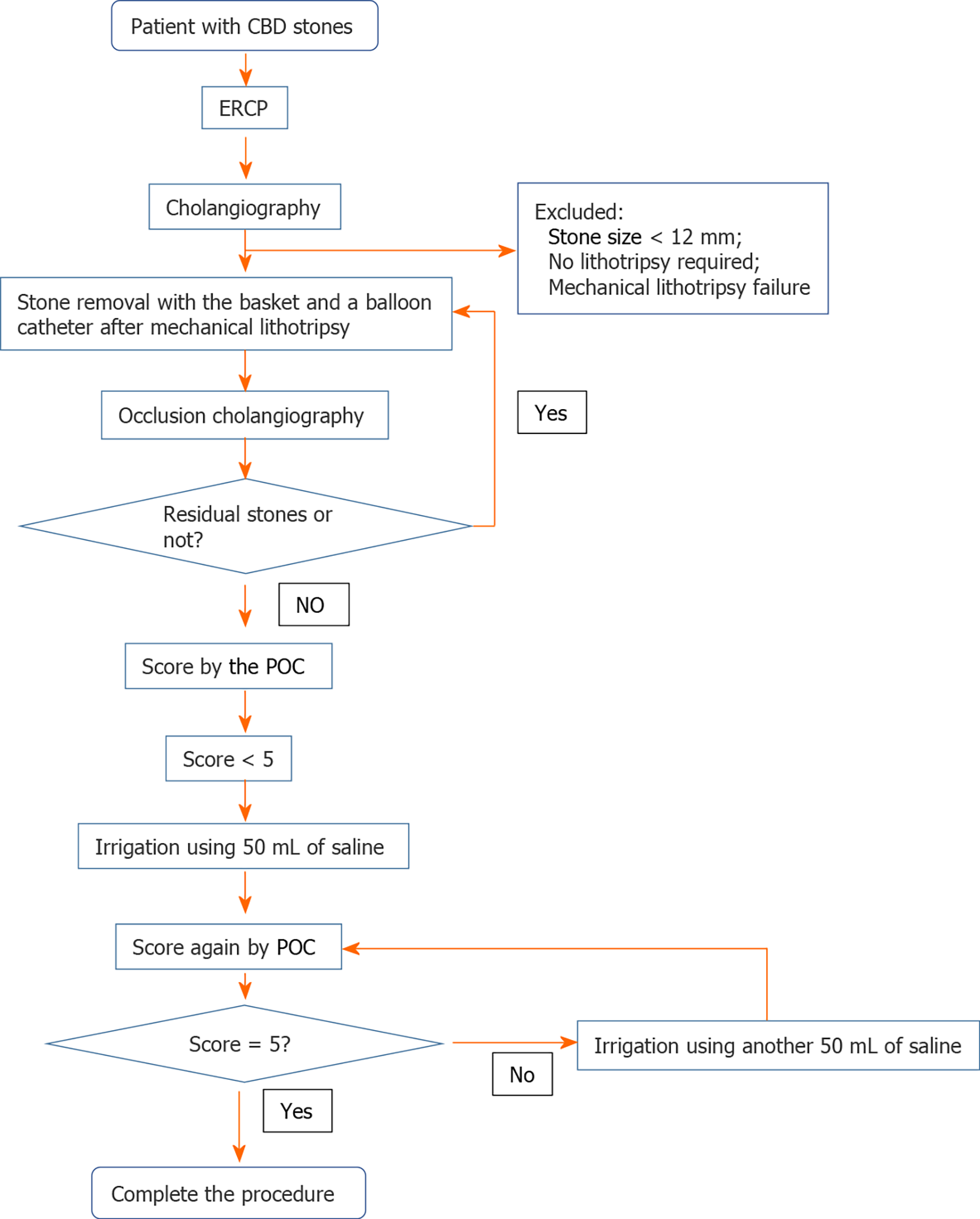©The Author(s) 2021.
World J Gastroenterol. Jan 28, 2021; 27(4): 358-370
Published online Jan 28, 2021. doi: 10.3748/wjg.v27.i4.358
Published online Jan 28, 2021. doi: 10.3748/wjg.v27.i4.358
Figure 1 Flow chart of the self-controlled study.
CBD: Common bile duct; ERCP: Endoscopic retrograde cholangiopancreatography; PTCD: Percutaneous transhepatic cholangiodrainage.
Figure 2 SpyGlass DS images and simulation graphs of the residual stone.
A-E: SpyGlass DS images (A1-E1) and simulation graphs (A2-E2). Score 1: A large amount of stone fragments and biliary sludge. Score 2: A moderate amount of stone fragments and biliary sludge. Score 3: A small amount of stone fragments and biliary sludge. Score 4: Presence of biliary sludge without any stones. Score 5: Completely cleared common bile duct without any biliary sludge.
Figure 3 Protocol of evaluation and irrigation procedures.
CBD: Common bile duct; ERCP: Endoscopic retrograde cholangiopancreatography; POC: Peroral cholangioscopy.
- Citation: Lin YY, Wang YD, Yue P, Zhang XZ, Leung JW, Jiao PP, Yang M, Wang HP, Bai B, Liu Y, Zhang JD, Chen HB, Meng WB, Li X. Could saline irrigation clear all residual common bile duct stones after lithotripsy? A self-controlled prospective cohort study. World J Gastroenterol 2021; 27(4): 358-370
- URL: https://www.wjgnet.com/1007-9327/full/v27/i4/358.htm
- DOI: https://dx.doi.org/10.3748/wjg.v27.i4.358















